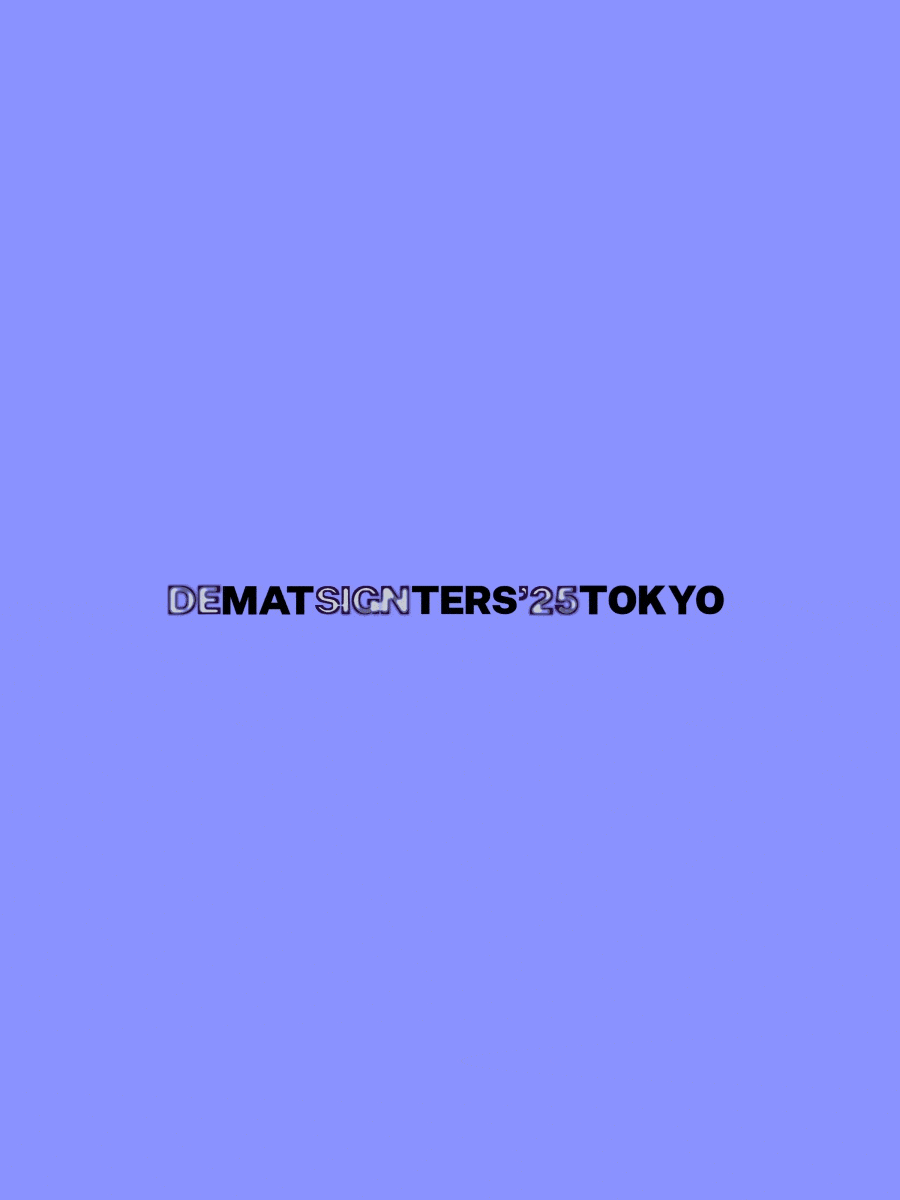-
DISCOVER MORE
- Design Matters 25
- Recordings
- Magazine
- Podcast










9:00-10:00
10:20-10:40
Main Stage
Pablo Ruiz-Múzquiz (PENPOT)
In his talk, Pablo will take us through Penpot and how it offers familiarity to both sides for smoother processes and being able to keep it all on a private ecosystem with sufficient safeguard measures.
10:40-11:00
Main Stage
Cheri Flewell-Smith (TORRENS UNIVERSITY AUSTRALIA)
This talk constructs an ideascape—a terrain of provocative questions and speculative futures—inviting designers to collectively explore how we might navigate this uncertain territory. Rather than providing neat answers, we'll map the contours of design's most pressing questions and illuminate paths for exploration.
11:00-11:20
Main Stage
Ben Shih (MIRO)
The traditional Double Diamond framework has long been a cornerstone of design thinking, guiding teams to understand users, define problems, ideate thoughtfully, and deliver meaningful solutions. But in today’s AI-driven world, the way we build products is rapidly evolving.
However, in the era of AI, many companies now prefer to launch quickly, gather feedback from real usage, and refine based on what actually resonates. This shift favors fast iteration over upfront certainty — using AI to generate, test, and evolve ideas in hours instead of weeks.
In this talk, I’ll explore how design processes are changing — from Double Diamond to Reverse Double Diamond, and now toward more fluid, AI-augmented workflows. I’ll introduce how models like the “Stingray” better reflect today’s fast, nonlinear, loop-based approach. Most importantly, I’ll share how we as designers can embrace AI tools in our everyday work, not just to move faster, but to think differently, and prepare ourselves for the future of product design.
11:20-11:40
Main Stage
11:40-12:00
Minami Hirayama (INDEPENDENT)
What can graphic designers do in the era of climate crisis?
Her talk covers the relationship between graphic design and hyper-consumerism and her personal story of becoming a designer while concerned about climate change. Even though being a graphic designer seems incompatible with being a climate activist, she discovers inspirational ideas and new ways of working towards positive social change.
12:00-12:20
Kenta Kondo (JITABATA)
Without the economic incentives to grow rice, without a predictable harvest season, without the youth pursuing careers in agriculture, the future of rice in Japan is looking rather grim. For the last three years, Maimee Rice Commons have been rehabilitating abandoned rice paddies to experiment with alternative forms of “value” creation. Come listen in if you're interested in how design futures and strategic foresight can empower communities at the local level.
12:20-12:40
Carla Paoliello (FBAULisboa/CIEBA)
This talk will explore the historical evolution of ecologically oriented design approaches—from ecodesign and biomimicry to biodesign and nature-centered design—highlighting their theoretical foundations and practical implications. Drawing on evolutionary biology, systems thinking, Indigenous epistemologies, and decentered design methods, we will present expanded design understandings that recognize species' interdependence.
Workshop Room


Only in-person ticket holders can attend this workshop. Workshops are not recorded.
11:40-1:00
Eriol Fox & Yuki Kawabe (OPEN SOURCE DESIGN | CODE FOR JAPAN)
In the workshop we'll focus on some critical aspects of what open source software is, how designers can get involved and begin to make our first contributions to these open source software projects through a series of templates created by Eriol and translated by Code for Japan.
1:00-2:20
Main Stage
2:20-2:40
Evan Yifan Liu (THE JAPAN RESEARCH INSTITUTE, LIMITED)
In this talk, Evan will share her experience working as a UI/UX Designer in a traditional Japanese company and how we embed sustainability into the core of our work. She will discuss how we navigate cultural values, business expectations, and modern design principles to create digital experiences that are not only user-friendly but also environmentally and socially responsible.
2:40-3:00
Iban Benzal (WISE)
As Designers, we are great at crafting customer-focused experiences. However, partnering effectively with those who make these experiences real - like Product Managers, Engineers, or Project Managers - is often a challenge. When our partners don't "get" design, it leads to frustration, limits our impact and in many cases, designers (myself included) jump boats to new companies. This talk will share a crucial skill not taught in design schools: how to build trust, navigate conflict, and align with cross-functional partners who think differently.
3:00-3:20
Asuka Kondo (D4V)
Ethical design isn’t just the right thing — it’s smart strategy with real returns. Discover how trust, care, and responsibility quietly build long-term value.
3:20-3:40
Manabu Sakamoto & Hiroko Nagayama (ARROWGRAPH)
We are surrounded by ever increasing convenient tools for design works. While we do use and appreciate them, there are things that we care about beyond these tools.
These things often come in such a detail that nobody may not notice or even we ourselves may forget about it after a while. Then, why bother? Well, hopefully you'd find out 'why' in this talk with real examples in various design projects.
Workshop Room


Only in-person ticket holders can attend this workshop. Workshops are not recorded.
2:20-3:50
Hiroyuki Masuda, Karin Kashima & Yuka Shinada (MORISAWA INC.)
Senja-Fuda is a tag in which your name and other information are written in commemoration of visiting a shrine or temple. Edomoji, designed over 300 years ago, is widely used to write letters on Senja-Fuda. This workshop will be conducted by Masuda, who has a 30-year career as a typeface designer.
You can touch one of Japanese writing style and typeface design while creating your original Senja-Fuda with some arrangement of Edomoji. Please enjoy a special experience and you will feel Japanese typography and tradition.
3:50-4:10
4:10-4:30
Main Stage
Alastair Simpson (INTUIT)
In the age of AI, craft and judgment remain our real differentiators. AI tools are rewriting the rules of how we design—but not why we design. In this talk, Alastair Simpson breaks down the real opportunity (and risk) in a world where anyone can generate 20 prototypes in 20 minutes. Spoiler: it’s not about speed. From Atlassian to Dropbox to Intuit, he shares lessons on why judgment, curiosity, and craft still set great designers apart - and how to keep emotion, storytelling, and care at the heart of your work. Because the tools will keep changing, but taste is what sticks
4:30-4:50
Main Stage
Liya Safina (INDEPENDENT)
This talk offers five principles — not commandments, not a TED Talk in disguise, just a field guide — for designing innovation that lands. Tech that does something. That cuts through the noise and stays useful, long after the hype dies down. It’s about building systems that are thoughtful, resilient, and actually worth trusting.
4:50-5:10
Main Stage
Ryosuke Arichi (NIANTIC)
Designing for utility is only the beginning.
The products we remember, the ones we come back to, often offer something more: a moment of joy, a spark of curiosity, and a sense of play. Blending personal reflection with practical insight, this talk offers a new lens on how to make digital products that transcend functionality, creating experiences that resonate, engage, and truly matter to the people who use them.
5:10-5:30
5:30-7:30
Main Stage
7:30-8:00